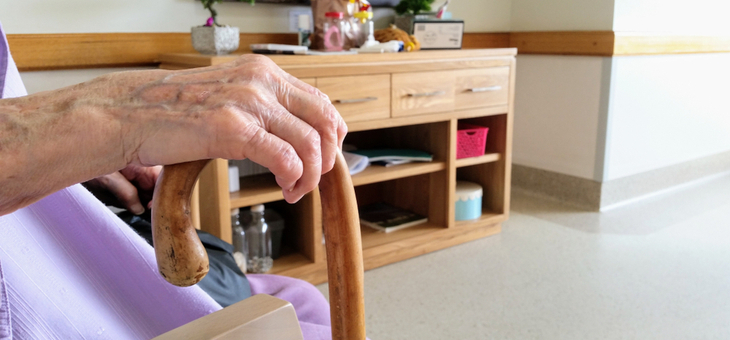The government has heeded the appalling findings of the aged care royal commission, allocating $17.7 billion to reform the aged care system over four years.
A total of $6.5 billion will create 80,000 new home care packages over the next two years meaning 275,600 packages will be available by June 2023. That should put a major dent in the backlog of 100,000 older Australians who had been approved for home care and are waiting – most impatiently – for an average of seven months for the lowest level of care and almost three years for high care.
Read more: Home care waiting list slammed as ‘critical failure’
Another $3.9 billion should see aged care residents receive a mandated 200 minutes per day, including 40 minutes by a registered nurse, in front line care, as per the royal commission’s recommendations.
The government has committed to develop a single assessment workforce by the end of 2022 and to implement a new single Support at Home system to deliver individualised care by the end of 2023.
It will increase the basic daily fee in residential care by $10 per day per bed, at a cost of $3.2 billion and introduce the Australian National Aged Care Classification (AN-ACC) funding system.
Just over $652 million has been set aside to train existing aged care workers and encourage more people to enter the industry. Another $630 million will be directed at providing better access to aged care in regional, rural, and remote Australia.
Read more: Older Aussies want to build or renovate, not go into aged care
Treasurer Josh Frydenberg said there would be “hundreds of extra audits” as public health researcher Dr Sarah Russell says mechanisms must be put in place to stop the ability to rort the system.
Dr Russell, the director of Aged Care Matters, wrote on MichaelWest.com.au: “Given that aged care providers didn’t spend the extra government money [in previous Budgets] on what they were supposed to, why give them further billions without specific accountability measures?”
Council on the Ageing (COTA) Australia has welcomed the package as a “serious and meaningful response to the royal commission”.
CEO Ian Yates said that by 1 July 2022, the government must guarantee no Australians wait longer than 30 days from the moment they register for home care to the moment they start to receive services.
“Importantly, this investment will be complemented by increased transparency around staffing and public funding and will ensure all aged care homes have a minimum staff time per resident. However, each of these measures needs to be stronger than announced and we will continue to argue for mandatory full transparency about staffing numbers and mix, finances including third party entity payments, quality measures and resident and family feedback.
“The Australian public deserves to know how their funding of aged care is being spent.”
Read more: Aged care, death and taxes after the royal commission
The government has committed $272.5 million to create a network of 500 Community Care Finders around Australia to help people access and navigate the aged care system from 2023.
The package contains a $798 million boost to support informal and family carers with residential respite and Commonwealth Home Support respite. There is also a funding boost of $229 million for dementia services.
The Australian Aged Care Collaboration (AACC), which represents more than 1000 providers, said that after 20 government reviews in 20 years, this Budget was finally addressing many of the challenges.
AACC representative Patricia Sparrow said the funding gave real hope to the more than 1.3 million Australians accessing aged care services, and to the 360,000 care staff and to the tens of thousands of Australian workers the sector will need to employ over the coming years to meet the demands of an ageing population.
Australian College of Nursing CEO Adjunct Professor Kylie Ward FACN said the Budget showed the government was engaging closely with how best to support the “broken” aged care sector.
“Supporting more nurses to enter the aged care sector, as well as encouraging those who may not be able to access education to enter the sector by creating scholarships, will help to bolster the workforce,” she said.
Have you or a loved one been waiting for a home care package? Are you confident the funding will reduce the waiting to 30 days? Have your say in the comments section below.
If you enjoy our content, don’t keep it to yourself. Share our free eNews with your friends and encourage them to sign up.

